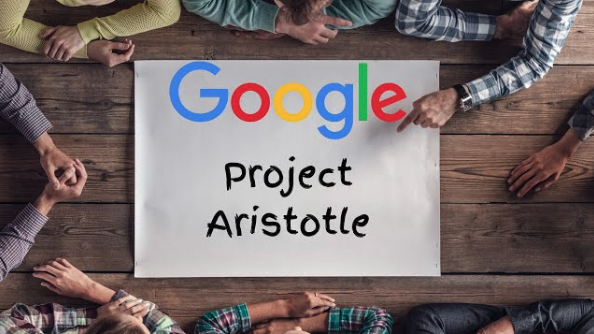
3 Powerful Things to Remember when Speaking Publicly
Overcoming common public speaking fears to become a better communicator
By Michael Lynn • 3/26/2015
Share this article:
I think everyone in a technical role needs the ability to communicate effectively and what I've found is that there's sometimes this dichotomy between technical proficience and communication skills. While these two very different skills are often seen as separate, they're actually very closely related. For example, if you're a software developer who's really good at writing code but not so great at explaining it to others, you may find that your colleagues or clients don't understand what you're trying to say, which can lead to misunderstandings and delays.
In fact, in 2012 Google ran an extensive internal study called Project Aristotle to understand what makes teams successful. Surprisingly, it wasn't raw intelligence or technical skill that mattered most... it was how well team members communicated and made each other feel safe to contribute. They found that the highest-performing teams shared a sense of psychological safety, where people felt comfortable asking questions, admitting gaps in knowledge, and sharing ideas without fear of judgment. Public speaking taps into the same dynamic...it's not about being flawless, it's about creating connection.
So now that we see the value of communication, let's explore the 3 things I learned early on which helped me become a better public speaker.
Before we dive into the list... I want to say something important about public speaking: it's not about being flawless. It's about creating connection and for me, helping others. I view improvements in my ability to communicate as a tool to increase my effectiveness in what I've come to believe is my life's purpose: To help others.
I've always been a bit of an introvert, so when my career took me in a direction that involved speaking in front of large groups, I was a little nervous. But over time, I learned three powerful things to remember when speaking publicly that have helped me become more comfortable and effective at it.

First up, addressing a fear that I held (and sometimes still hold) onto firmly: The audience is going to discover that I'm a fraud. After decades of public speaking, this still plays a role in my anxiety approaching a speaking engagement... here's tip number one that I embrace to help with this.
1. Nobody in the audience truly knows what you know
The phenomena underlying this public speaking fear is commonly referred to as "Imposter Syndrome". But the truth is, most people in the audience are just like you - they're there because they want to learn or be entertained. They don't know everything, and they don't judge others based on their knowledge. So, if you feel like you don't know more than someone else in the room, remember that it's okay. You have something valuable to share, and people appreciate it. Just remember that nobody truly knows what you know.
2. Confidence is more than 50% of your messages
When speaking publicly, I've found that when I'm able to channel a confident personna regardless of how I feel about the topic, the talk goes much better. It's not just about feeling good about yourself and your message - it's also about projecting confidence through your body language, tone of voice, and word choice. So, if you're feeling nervous or anxious before a speech, try to focus on projecting confidence instead of worrying about what you might say wrong. Remember that everyone makes mistakes, and the audience is there to learn from them too.
One thing that helps in this respect is turning the internal camera outward. Don't focus on yourself. Focus on what you are bringing to the time you're spending in front of your audience. Think about how you can help them, what value you can bring to their lives. This will naturally project confidence and make you feel more prepared for the talk.
Last thing on this point... I think it's important to remember that confidence is not just a feeling - it's also something you can cultivate through practice. So, if you're struggling with confidence in public speaking, try practicing your speeches in front of a mirror or recording yourself and watching it back. This will help you identify areas where you need to work on projecting confidence and give you the opportunity to improve over time.
3. "I don't know" is absolutely acceptable.
It's okay to not know everything. In fact, it can be a strength in public speaking because it shows that you're open-minded and willing to learn. When you say "I don't know," you're giving your audience permission to ask questions and engage with you. This can help create a more interactive and engaging experience for everyone involved.
In smaller public speaking engagements, those engagements where you're likely to have to answer questions... admitting that you don't know the answer is actually a great way to build trust with your audience. It shows that you're approachable and willing to learn, which can help create a more positive and supportive environment for everyone involved.
A very insightful person in my life, a bit of an informal mentor once gave me a powerful quote... "A truly enlightened person knows they don't know everything." This is something that I've carried with me throughout my career and it's helped me to be more open-minded and willing to learn. It's also helped me to be more confident in public speaking because I know that there's always something new to learn.
"To know that you do not know is the best. To pretend to know when you do not know is a disease." -- Lao Tzu (Tao Te Ching)